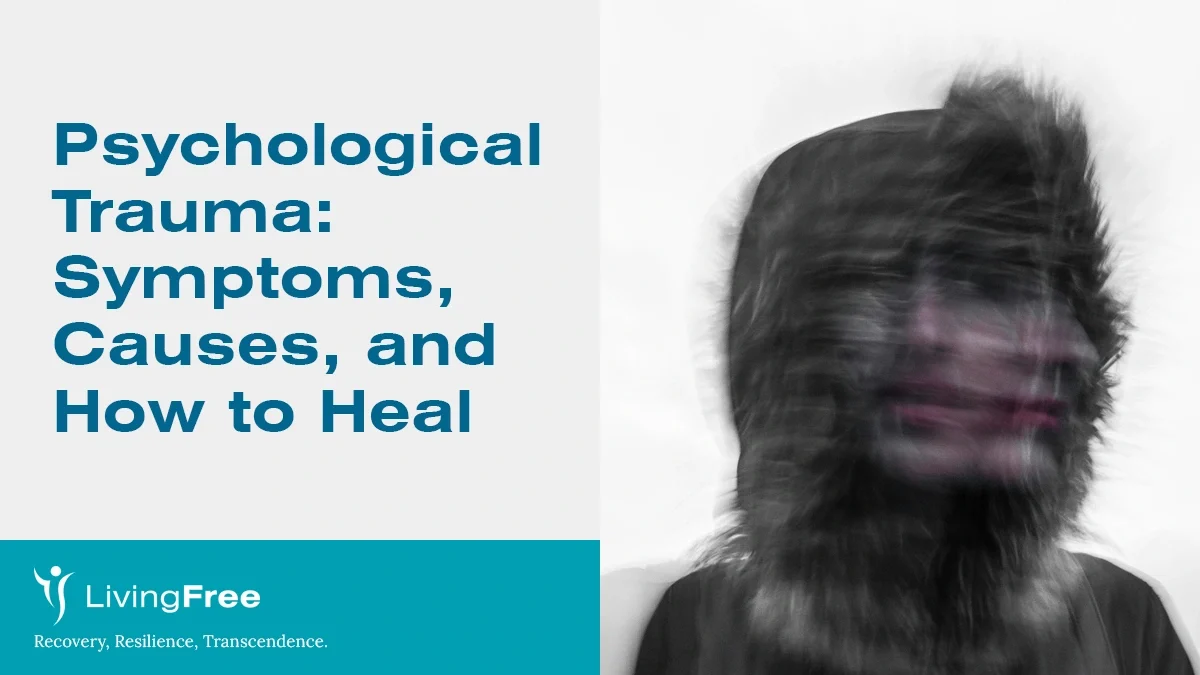Psychological trauma is a mental injury caused by a severely distressing event or a series of events that overwhelm an individual’s ability to cope. These experiences can lead to emotional distress and long-term psychological symptoms. Trauma can arise from accidents, violence, natural disasters, abuse, or even prolonged exposure to stressful environments.
What Is Psychological Trauma?
According to the American Psychological Association (APA), psychological trauma is any disturbing experience that results in significant fear, helplessness, dissociation, confusion, or other intense emotional reactions, often with lasting effects on a person’s mental and behavioral functioning.
What defines trauma is not only the external event itself but the individual’s subjective emotional experience. If someone feels powerless, threatened, or unsafe during a situation, that experience may become traumatic — even if others wouldn’t perceive it the same way.
Trauma can manifest after:
- A single event (e.g., a car accident or violent assault)
- A series of events (e.g., ongoing domestic abuse)
- Indirect exposure (e.g., witnessing violence, or caring for trauma survivors)
Key Characteristics of Psychological Trauma
Psychological trauma affects people differently, but common characteristics include:
• Overwhelming Emotions
Trauma floods the nervous system and disrupts the ability to regulate thoughts and feelings, resulting in intense emotional reactions.
• Emotional Distress
Common emotional responses include fear, anxiety, numbness, detachment, depression, and anger.
• Impact on Mental and Physical Health
Trauma may lead to conditions like PTSD (Post-Traumatic Stress Disorder), depression, anxiety disorders, and substance abuse. Physical symptoms such as fatigue, tension, and digestive issues are also common.
• Subjective Experience
Two people can live through the same event, but only one may be traumatized. The emotional interpretation of the event — not the event alone — determines whether it causes trauma.
Common Causes and Examples of Traumatic Events
Psychological trauma can result from a wide range of life experiences, including:
- Accidents (car crashes, workplace injuries)
- Natural Disasters (earthquakes, hurricanes, floods)
- Violence (physical or sexual assault, robbery)
- Abuse (emotional, physical, or childhood abuse)
- Sudden Loss (death of a loved one or miscarriage)
- Serious Illness or Medical Procedures (including traumatic childbirth)
- Occupational Exposure (first responders, healthcare workers)
- War or Conflict (combat trauma, forced displacement)
According to the WHO, 70% of people globally will experience at least one potentially traumatic event in their lifetime — but only about 5.6% go on to develop PTSD.
Types of Psychological Trauma
• Acute Trauma
From a single sudden incident, such as a serious accident or assault.
• Chronic Trauma
Results from prolonged or repeated exposure, such as long-term abuse or ongoing violence.
• Complex Trauma
Involves multiple interpersonal traumatic events, often starting in childhood (e.g., neglect, abandonment).
• Secondary or Vicarious Trauma
Affects those who are indirectly exposed, such as therapists, social workers, or journalists who hear accounts of others’ trauma.
Emotional vs. Psychological Trauma: Is There a Difference?
Though often used interchangeably, the two terms have subtle distinctions:
Psychological trauma refers to the broad mental impact of a traumatic experience — including thoughts, beliefs, and behaviors.
Emotional trauma highlights the emotional pain itself, such as shame, fear, grief, or betrayal.
In most cases, emotional trauma is part of the psychological trauma response.
Do I Have Psychological Trauma? Signs to Watch For
Some trauma symptoms show up immediately, while others may appear weeks, months, or even years later. Here are key signs:
Emotional & Psychological Symptoms:
- Intrusive thoughts, flashbacks, or nightmares
- Intense fear, anxiety, or panic attacks
- Emotional numbness or disconnection
- Guilt, shame, or self-blame
- Depression or hopelessness
- Anger, irritability, or mood swings
Cognitive & Behavioral Symptoms:
- Difficulty concentrating or remembering
- Avoiding people, places, or topics related to the trauma
- Sleep disturbances and fatigue
- Social withdrawal or isolation
- Hypervigilance or exaggerated startle response
- Risky behaviors or substance use
Not everyone who goes through a traumatic experience will develop psychological trauma. Some recover quickly, while others need more time and support.
How to Heal from Psychological Trauma
Professional Therapy
Trauma-Focused Cognitive Behavioral Therapy (TF-CBT) and EMDR are the most effective treatments for trauma-related symptoms.
These therapies help individuals reprocess and manage distressing memories safely and reduce symptoms like flashbacks or hypervigilance.
Self-Care Strategies
WHO recommends the following self-care methods to support trauma recovery:
- Maintain a structured daily routine
- Engage in light exercise or physical activity
- Avoid alcohol and illicit drugs
- Talk to trusted people when ready
- Practice sleep hygiene
- Use relaxation techniques like deep breathing
Social Support
A strong support system significantly reduces the risk of developing PTSD after a traumatic event.
Does Psychological Trauma Ever Go Away?
In many cases, yes. According to WHO data, up to 40% of people with PTSD recover within one year, and more recover over time. However, recovery is personal and non-linear:
- Some may recover quickly
- Others may need long-term therapy and support
- Triggers may reappear even after years
What matters most is consistency, safety, and access to care.
How to Support Someone With Trauma
What You Can Do:
- Listen without judgment or trying to fix
- Be present and patient
- Offer practical help with everyday tasks
- Encourage seeking professional help (gently)
❌ What Not to Say:
- “You’re being dramatic.”
- “It’s been long enough.”
- “Just move on.”
- “It wasn’t that bad.”
Trauma survivors need compassion, not correction. Respect their process and boundaries.


